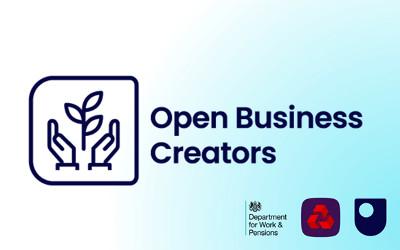Day 30, Year of #Mygration: Call for Papers

Ask the 'experts'? Positionalities of researchers and public figures of migrant background in European debates about immigration
By Dr Sara de Jong, co-lead of the 'Justice, Borders, Rights' research stream and Research Fellow of the Citzenship & Governance Strategic Research Area at The Open University.
Anecdotal evidence suggests that racialised researchers and public figures find themselves in an ambivalent position when the issue of migration suddenly becomes topical. Everyone wants to hear their views and attributes the perspectives they offer to their racialised bodies and experiential knowledge rather than to their professional expertise.
A former Austrian colleague of mine who does research on Georgian transmigration receives compliments about her fluent German when presenting her work. Audience members assume she must be Georgian herself. In fact she is Austrian-born and part of Austria’s Corinthian Slovenian minority.
The international workshop "Ask the 'experts'? Positionalities of researchers and public figures of migrant background in European debates about immigration", convened by Dr Sonja Moghaddari (Max Planck Institute for the Study of Religious and Ethnic Diversity (MPI-MMG)) and myself, Dr.Sara de Jong (The Open University), seeks to address the following questions:
- Who is the expert on migration and why?
- What are the stakes of being granted or asserting voice in debates about immigration?
- How do public figures and researchers experience and engage with multiple identifications?
- How do they/we relate to and reflect on their/our dealings with newcomers?
- How should we understand the roles of othered public figures and researchers against the backdrop of historical precedents and across different national contexts?
- What are the challenges to their/our contribution to migration theory and policy?
- Finally, what do our findings indicate about how perception of difference evolves in contemporary European societies of immigration?
This interdisciplinary workshop will take place at the MPI-MMG, Department of Socio-Cultural Diversity, Göttingen from June 28-29, 2018. It explores the roles, perspectives and positionalities of racialised researchers and public figures (such as politicians, journalists or artists), whose self-claimed or ascribed identities are often the same as those of newcoming migrants. Through their activities in research and media, such people become protagonists in public debates about immigration. We consider the peculiar place they inhabit in social hierarchies by examining their changing identifications, as well as their engagement with issues of representation and brokerage, research ethics and knowledge production. The workshop seeks to contribute to the reflexive turn in anthropology, and offer new insights into the way difference in post-migratory Europe is confirmed, contested and (de-) constructed.
The workshop will center on two lines of inquiry:
- reflexivity concerning own field work; and
- public figures' positionalities
We invite paper submissions from the fields of Sociology, Anthropology, Geography, Political Sciences, Media Studies or History.
This is a semi-closed workshop. If you are interested in attending, please send an abstract (approx. 250 words) and a short bio before 11 February 2018.
Contact our news team
For all out of hours enquiries, please telephone +44 (0)7901 515891
Contact detailsNews & articles

Grant recipients announced for the 2025 Open Business Creators Fund for Women in Business
The businesses selected to receive funding from the Open Business Creators Fund for Women in Business, (delivered by The Open University and sponsored by NatWest) have been announced.